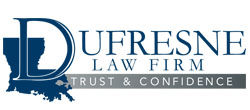

Did you know there is an average of 500,000 auto accidents per month in the United States? That is a lot. Although that number is high, many individuals have never been in the situation or did not follow proper steps. Not following a list of best practices can lead to headaches and even financial loss.
There is a set of things we recommend you should do to protect yourself and your interests.
The following is a list of the top ten things you should do if you are in an auto accident.
- Stay Put – Never leave the accident scene, even if it’s a minor one. Even if you were in a rush to get somewhere extremely important, it is not an excuse to leave. If you leave, and someone was injured, you can face serious criminal penalties. At this point, do not worry about moving your vehicle.
- Assess for Injuries – The top priority is to take care of injuries. Make sure everyone in your vehicle is okay. If a person is unconscious or has neck or back pain, don’t move them unless a hazard requires moving them. Often, injuries are not immediately apparent. Unless you are absolutely certain you were not injured, seek medical attention. Even minor impacts can cause spinal cord or closed head injuries that you may not be aware of. Later, when calling the police, it may be best to state there may be injuries just to get a medic on the scene. If you are not sure of your injuries at the time and a medic does not show up, you should seek medical attention as soon as possible at your local emergency room or by seeing your family physician.
- Ensure Further Safety – Make sure your engine is off and the breaks on. Turn on your emergency flashers and if you have road safety items, consider using them. You want to do what you can to prevent further accidents that could end up being your fault. Check on injuries and safety of the other party.
- Call the Police – It is a good idea to call the police no matter the severity of the accident. Doing so ensures there is a police report to assist with filing claims and dealing with other drivers. You can state the situation and ask if it is appropriate to move your vehicles or not.
- Should you Move? – If vehicles are blocking traffic or in a hazardous situation, they should be moved. As stated above, when calling the police you should ask for their recommendation. If traffic is not completely blocked and no hazardous conditions, we suggest not moving. If you are going to move, snap some photos of the initial accident scene.
- Take Pictures – As stated above, you should try to get pictures of the initial accident scene. Take pictures of the vehicles and all visible damage. If you have visible injuries, take pictures of them as well. If you cannot take pictures at the scene, take them as soon as possible after the accident.
- Get Information – Write down or record as much information about the other party as possible. Make sure to get all the names of the other party as well as license plate numbers, registration, and insurance card information. Obtain contact information from any eyewitnesses as well. Also, make sure to document the conditions present: weather, traffic, time, something in the road, or perhaps a traffic light was out. Document whatever you can think of.
- Provide Accurate Records – When the police arrive, make sure to state the facts of what happened, to the best of your ability. If you are not certain of any facts, state that. Avoid speculation, guessing, or misstating any facts. Often, pain from injuries become apparent hours after an accident. If you are asked if you are injured and you are not sure, say you are not sure, rather than no. A natural instinct may be to say sorry to the other party or to the officers. Apologetic words or behaviors can imply you are assuming fault. Stick to simply stating the facts. It is important never to admit liability of any kind.
- Accident Filing – Make sure to file your insurance claim right away after the accident. Cooperate with them and tell them the truth about what happened and the extent of your injuries. Just like reporting to the police, explain facts. Lying to your insurance company or hiding serious information can lead to a denial of coverage. Along with filing a claim to your insurance company, you should also create your own physical and digital filing. Keep all accident documents and information together. Note any medical treatment, doctors visits, and even consider a journal of how your injuries have impacted your daily life like missed work or not being able to perform routine activities. Always request copies of all reports, expenses, records, and adjuster information.
- Protect Your Rights – Consulting an attorney can help you protect your rights and ensure you are fully compensated for your vehicle and make sure you are getting the best medical treatment available. Some injuries can take weeks or months to present themselves. An injury attorney can help you avoid settling a claim prematurely and ensure you are fully compensated for all of your injuries. Often, insurance companies want to take statements immediately after an accident and seeking legal advice before these statements can greatly help your situation. An attorneys advice can help you fully understand your legal rights and rights to financial compensation.
